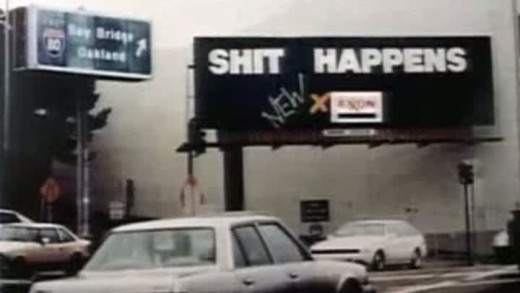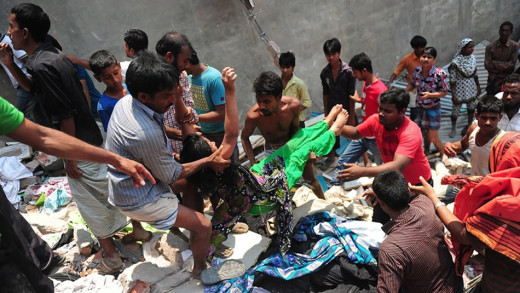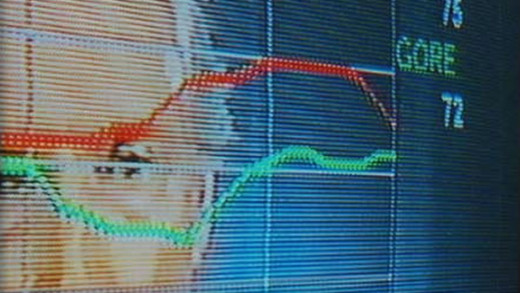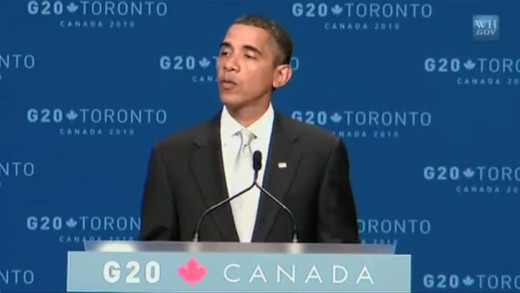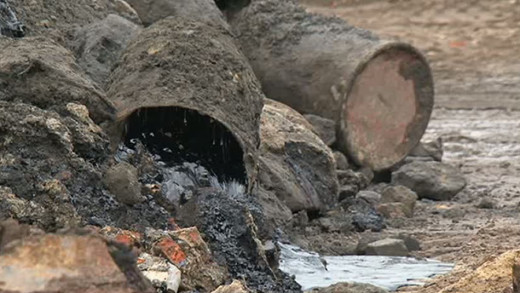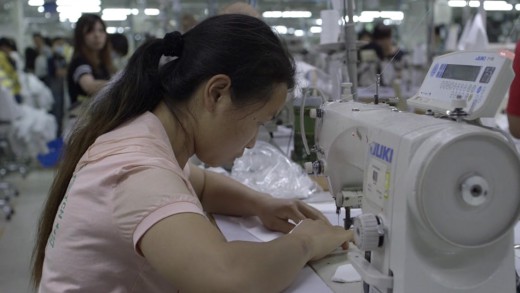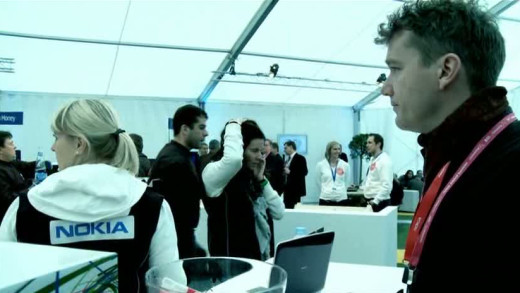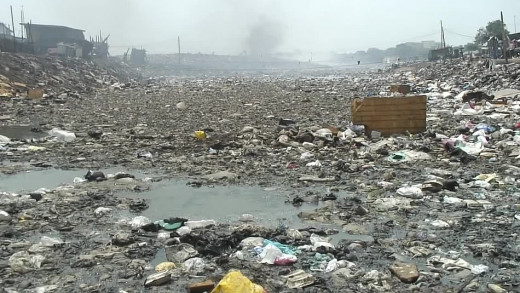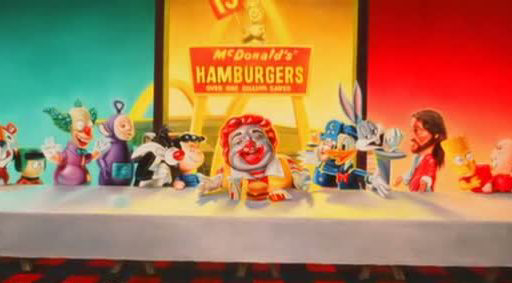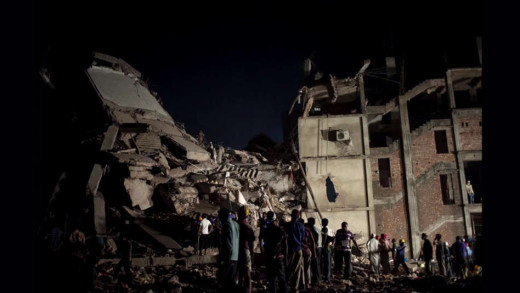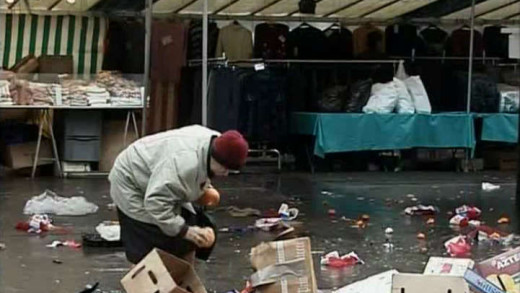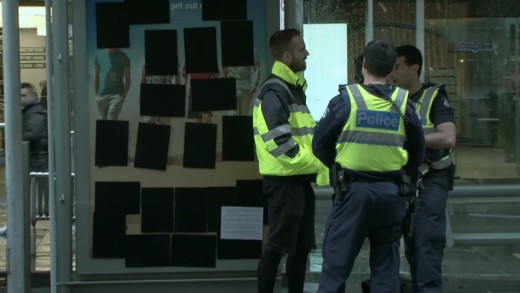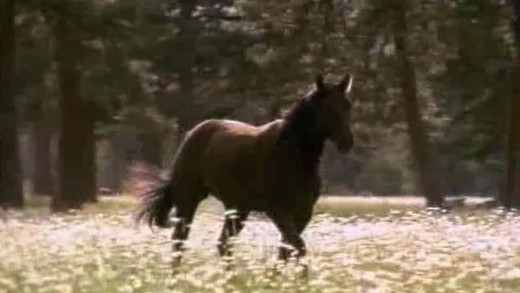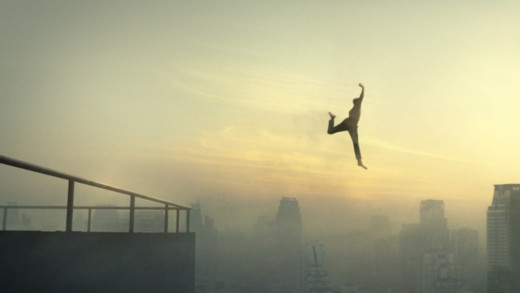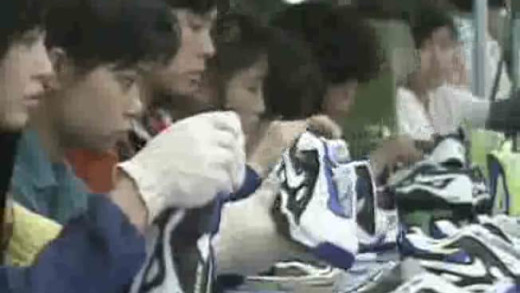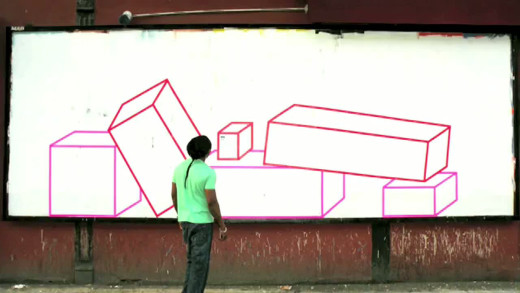Recorded by over 100 media activists, this film tells the story of the enormous street protests in Seattle, Washington in November 1999, against the World Trade Organisation summit. Vowing to oppose--among other faults--the WTO's power to arbitrarily overrule nations' environmental, social and labour policies in favour of unbridled corporate greed, thousands of people from all around the United States came out in force to stop the summit. Against them was a brutal police force and a hostile media. This Is What Democracy Looks Like documents the struggle, as well as providing a narrative to the history of success and failure of modern political resistance movements.
Culture Jam documents a movement against advertising and the repurposing of commercial messages by following pranksters and subversive artists as they hijack, subvert and reclaim corporate media space in the battle of public 'mind-share' dominated by the consumer culture. Stopping in San Francisco, New York's Times Square and other parts of the United States, Culture Jam documents some jamming in action—armed with everything from DIY anti-ad stickers, custom neon, to the art of performance and guerilla film screenings—to illustrate just some of what people can do to push back against the saturation of commercial media messages in public space.
Fashion Victims looks at the real cost of cheap clothes from the conditions of sweat shops in Bangladesh. On 24th April, 2013 more than a thousand people were killed when an eight storey building collapsed in the heart of Bangladesh's capital, Dhaka. The collapse of Rana Plaza turned the world's attention to the shocking conditions workers in the country's clothing industry are forced to endure. In recent years, Australian companies have flooded into Bangladesh to take advantage of lax labour laws and the lowest wages in the world, paid to the predominantly young, female workers in the factories.
We live in a world of screens. The average adult spends the majority of their waking hours in front of some sort of screen or device. We're enthralled, we're addicted to these machines. How did we get here? Who benefits? What are the cumulative impacts on people, society and the environment? What may come next if this culture is left unchecked, to its end trajectory, and is that what we want? Stare Into The Lights My Pretties investigates these questions with an urge to return to the real physical world, to form a critical view of technological escalation driven rapacious and pervasive corporate interest. Covering themes of addiction, privacy, surveillance, information manipulation, behaviour modification and social control, the film lays the foundations as to why we may feel like we're sleeprunning into some dystopian nightmare with the machines at the helm. Because we are, if we don't seriously avert our eyes to stop this culture from destroying what is left of the real world.
Each year, legions of ad people, copywriters, market researchers, pollsters, consultants, and even linguists spend billions of dollars and millions of hours trying to determine how to persuade consumers what to buy, whom to trust, and what to think. Increasingly, these techniques are migrating to the high-stakes arena of politics, shaping policy and influencing how Americans choose their leaders. In The Persuaders, renowned media scholar Douglas Rushkoff explores how the cultures of marketing and advertising have come to influence not only what we buy, but also how we view ourselves and the world around us. The Persuaders draws on a range of experts and observers of the advertising and marketing world, to examine how, in the words of one on-camera commentator, “the principal of democracy yields to the practice of demography,” as highly customised messages are targeted to individuals using technology and fine-tuned social engineering techniques.
The 2008 'financial crisis' was a systemic fraud in which wealthy finance capitalists stole trillions of public dollars all over the world. No one was jailed for this massive crime, the largest theft of public money in history. Instead, the rich forced working people across the globe to pay for their 'crisis' through punitive austerity programs that gutted public services and repealed workers' rights. Capitalism Is The Crisis shows and explains this fundamental functioning of the global economy, while visiting protests from around the world against it, revealing revolutionary paths for the future. Special attention is devoted to the current situation in Greece, the 2010 G20 Summit protest in Toronto Canada, and the remarkable surge of solidarity in Madison, Wisconsin.
Steve Jobs: The Man in the Machine is not just another celebratory biographical film about the life of a business man that many around the world grieved in 2011. It's a full rounded critical examination into the fundamentals of a person revered as an iconoclast, a barbed-tongued tyrant, a business sociopath. The real Steve Jobs is revealed like this through candid interviews from those who had close relationships with him at different stages of his life, including the mother of his child, Lisa, that Jobs refused he had, but named a computer after instead. The film also takes us through the evocative essence of the brand of Apple Computers which has captured the population like zombies, and asks the question: What is the legacy of this industry, and the truth of this kind of person that the culture celebrates so much, completely ignoring the darkness?
Diamond Empire is a two-part series that investigates how an advertising slogan invented by Madison Avenue executives in 1948 has come to define some of the most intimate and romantic rituals and ideals of this culture. The films take apart the myth that "diamonds are forever," exposing how one white South African family, through a process of monopoly and fantasy, managed to exert control over the global flow of diamonds and change the very way this culture projects the notion of courtship, marriage, and love--an achievement all the more stunning given that diamonds are in fact neither scarce nor imperishable. Zeroing in on how the diamond empire managed to convert something valueless into one of the most coveted commodities in history, these films provide a vigorous investigation into how marketing and consumer culture shape not only global trade and economics, but also our very identities.
Barbie, H&M jeans, everyday corn--just some of the products recalled due to controls on the use of dangerous chemicals as a wave of legal cases over toxicity is calling manufacturing of certain products into question. The Toxins Return follows the trail from field worker, to customs, to the high street shopper--how much can we trust all these products?
Corporations On Trial is a five-part series following just some of the many lawsuits being brought against multinational corporations for war crimes, conspiracy, corruption, assassinations, environmental devastation and payments to terrorists. Such serious charges have forced some of the world's largest companies to hire high-profile defence lawyers to protect public relations in cases often brought by plaintiffs who are barely literate. These five films reveal a growing anxiety about the power and influence of big business, as many multinational corporations have annual revenues greater than some countries' national budgets and indeed increasingly hold governments to ransom by their economic power. Around the world, ordinary people are fighting back and asking how many more times their interests should be sacrificed for corporate greed and shareholder profit...
The True Cost is a global investigation into the clothes we wear, the people who make them, and the impact the industry is having on the world. The price of clothing has been decreasing for decades, while the human and environmental costs have grown catastrophically. The True Cost pulls back the curtain on the untold story and asks us to consider, who really pays the price for our clothing?
Having received a tip from an employee at a farm where animals were being abused, including a claim that pigs were being hung by chains and strangled to death as a form of 'euthanasia,' the Humane Farming Association (HFA) turns to an undercover investigator going by the name of "Pete." While wearing a hidden camera, Pete secretly films while he works undercover as a farmhand at Wiles documenting numerous incriminating scenes, including piglets being tossed into crates from across a room, impregnated sows held in pens impeding their ability to move, an unhealthy piglet being hit against a wall to kill it, and a sick sow being hung by a chain from a forklift until it choked to death. Having obtained this evidence, Pete concludes his investigation and quits the job at the farm. In the subsequent trial carried by the HFA, the prosecutors and the defence argue the legality and morality of these practices. The presiding judge describes it as "distasteful and offensive," however, rules that such are the realities of factory farming...
Modern society loves mobile phones -- the selection between different models and gadgets has never been bigger. But the production of this technology has a hidden, dark, bloody side. The main minerals used to produce mobile phones are coming from the mines in the Eastern DR Congo. The Western World is buying these minerals up at a furious rate, financing a bloody civil war which, during the last 15 years, has cost the lives of more than 5 million people. Blood In The Mobile explains the connections between mobile phones and the civil war in the Congo, while technology corporations whitewash the issue to "supply and demand" and claim ignorance...
Almost 50 million tonnes of electronic waste is generated worldwide, every year. A large volume of it is shipped off to Ghana, in West Africa, as "second-hand goods" where electronics are not seen for what they once where, but rather for what they've become. Without dialogue or narration, e-Wasteland presents a visual portrait of vast landscapes polluted by electronic waste, shining a light on the endless consumerism of the 1st world; and the real, pervasive, ecological impact of electronic waste worldwide.
YouTube, owned by Google, has become one of the most powerful online media platforms in the world, fast to be replacing the viewership of television with over 30 billion hours watched per month in 2017. Young people flock to the platform in the hopes of fame and fortune, which comes for a select few, but not all, hence the allure to 'make it.' YouTube celebrities are now mainstream celebrities. The result is troves competing to live their lives as monetised open-wounds for the corporate platform, constantly pleading for subscribers, attention and engagement, all at the hands of Google, its secret algorithms, and the screen culture of spectacle, pornography, and targeted advertising. On both sides of the screen, the treadmill is all about keeping the ad dollars constantly rolling. YouTube, YouTubers and You offers a glimpse into this new media and advertising world, pondering how this culture may continue to undermine our future media and informational landscape. What sort of people and world is this culture creating and perpetuating?
They spend their days sifting through reams of market research data. They conduct endless surveys and focus groups. They comb the streets, the schools and the malls, hot on the trail of the "next big thing" that will snare the attention of their prey -- a market segment worth an estimated $150 billion a year. They are the merchants of cool: creators and sellers of 'popular culture' who have made teenagers the hottest consumer demographic...
Several lawsuits have been brought against McDonald's corporation in that they are knowingly selling food that is unhealthy. Some of the court decisions have stated that consumers would have a claim if they could prove that eating the food every day for every meal is dangerous. So with that, Super Size Me follows film-maker Morgan Spurlock conducting the experiment -- he eats only McDonald's for thirty days, three meals a day, and if asked to super size a meal, he has to say yes. By the end of the thirty days, he will have eaten every single menu item at least once. The film documents the drastic effect on Spurlock's health, while exploring the fast food industry's corporate influence, advertising and how it encourages poor nutrition for its own profit...
In Requiem for the American Dream, renowned intellectual figure Noam Chomsky deliberates on the defining characteristics of our time—the colossal concentration of wealth and power in the hands of the few and fewer, with the rise of a rapacious individualism and complete collapse of class consciousness. Chomsky does this by discussing some of the key principles that have brought this culture to the pinnacle of historically unprecedented inequality by tracing a half century of policies designed to favour the most wealthy at the expense of the majority, while also looking back on his own life of activism and political participation. The film serves to provide insights into how we got here, and culminates as a reminder that these problems are not inevitable. Once we remember those who came before and those who will come after, we see that we can, and should, fight back.
Clothes to Die For documents the worst industrial disaster of the 21st century--the collapse of the Rana Plaza building in Bangladesh, in which more than 1,100 people died and 2,400 were injured. The eight-storey building housed factories that were making clothes for many western companies--Prada, Gucci, Primark, Walmart, H&M, Gap, and others. Through a series of compelling interviews and footage from the scene, this film gives a voice to those directly affected, and highlights the greed and high-level corruption that led to the tragedy. It also provides an insight into how the incredible growth in the garment industry has transformed Bangladesh, in particular the lives of women. Clothes to Die For raises fundamental questions about the global fashion industry and the responsibilities of all those involved.
The Gleaners and I explores gleaning -- the act of collecting food from farmers' leftover crops after they have been commercially harvested. Travelling along the French countryside, the film-maker follows a series of gleaners as they hunt for food, knicknacks, and personal connection; capturing the many aspects of gleaning and the many people who glean to survive -- finding not only field gleaners, but also urban gleaners and those connected to the gleaners, including a wealthy restaurant owner, an urban gleaner with a master's degree who teaches French to immigrants, and artists who incorporate recycled materials into their works...
In a visual exploration of institutionalised prostitution, Whores' Glory travels the globe to show how these people really live and work today, across three economically divergent countries. In Bangkok, Thailand, women punch a clock and wait for clients inside a brightly-lit glass box. In the red-light district of Faridpur, Bangladesh, a madam trafficker haggles over the price of a teenage girl. On the border town of Reynosa, Mexico, crack-addictions run high while women pray to 'Lady Death.' Whores' Glory is a unobscured look at the realities of sex-trafficking today and the industry that continues to spawns it and keep it alive.
No Measure of Health profiles Kyle Magee, an anti-advertising activist from Melbourne, Australia, who for the past 10 years has been going out into public spaces and covering over for-profit advertising in various ways. The film is a snapshot of his latest approach, which is to black-out advertising panels in protest of the way the media system, which is funded by advertising, is dominated by for-profit interests that have taken over public spaces and discourse. Kyle's view is that real democracy requires a democratic media system, not one funded and controlled by the rich. As this film follows Kyle on a regular day of action, he reflects on fatherhood, democracy, what drives the protest, and his struggle with depression, as we learn that "it is no measure of health to be well adjusted to a profoundly sick society."
Humanity is absolutely dependent on animals as part of life. In industrial society however, this has extended to animals as pets, 'entertainment' and for expendable use in scientific research -- animals are tortured for 'scientific tests', locked in cages as pets and at the zoo and are bred on mass for cheap meat. What does this say about industrial civilisation? Earthlings conducts an in-depth study into pet stores, puppy mills and animals shelters, as well as factory farms, the leather and fur trades, sports and entertainment industries, and the medical and scientific profession, using hidden cameras to directly show the day-to-day practices of some of the largest industries in the world...
The Crisis of Civilization draws on archive footage and essentially monologue by author Nafeez Mosaddeq Ahmed to detail how global problems like environmental collapse, financial crisis, peak energy, terrorism and food shortages are all symptoms of a single, failed global system...
The Disney Company's massive success in the 20th century is based on creating an image of innocence, magic and fun for kids. Its animated films in particular are almost universally lauded as wholesome family entertainment, enjoying massive popularity among children and endorsement from parents and teachers around the world. This film takes a close look at Disney, to analyse the world these films create for kids and the stories they tell and propagate; contextualised by the cultural pedagogy of Disney's conglomerate mass-media control and vast corporate power. Including interviews with social commentators, media scholars, child psychologists, kindergarten teachers, multicultural educators, college students and children, Mickey Mouse Monopoly provokes audiences to confront assumptions about an institution that is virtually synonymous with childhood pleasure.
Ten years on from his previous film, Advertising & the End of the World, renowned media scholar Sut Jhally follows up by exploring the since-escalating devastating personal and environmental fallouts of advertising and the near-totalising commercial culture. The film tracks the emergence of the advertising industry in the early 20th century to the full-scale commercialisation of the culture today, identifying the myth running throughout all of advertising: the idea that corporate brands and consumer goods are the keys to human happiness and fulfilment. We see how this powerful narrative, backed by billions of dollars a year and propagated by clever manipulative minds, has blinded us to the catastrophic costs of ever-accelerating rates of consumption. The result is a powerful film that unpacks fundamental issues surrounding commercialism, media culture, social well-being, environmental degradation, and the dichotomy between capitalism and democracy.
In the age of the brand, logos are everywhere. But why do some of the world's best-known brands find themselves at the end of spray paint cans and the targets of anti-corporate campaigns? No Logo, based on the best-selling book by Canadian journalist and activist Naomi Klein, reveals the reasons behind the backlash against the increasing economic and cultural reach of multinational companies. Analysing how brands like Nike, The Gap, and Tommy Hilfiger became revered symbols worldwide, Klein argues that globalisation is a process whereby corporations discovered that profits lay not in making products (outsourced to low-wage workers in developing countries), but in creating branded identities people adopt in their lifestyles. Using hundreds of media examples, No Logo shows how the commercial takeover of public space, the restriction of 'choice', and replacement of real jobs with temporary work -- the dynamics of corporate globalisation -- impact everyone, everywhere...
My Public Space is a short film following a local artist in New York City, documenting the effort to reformat the visual pollution of advertising into public artwork spaces...

